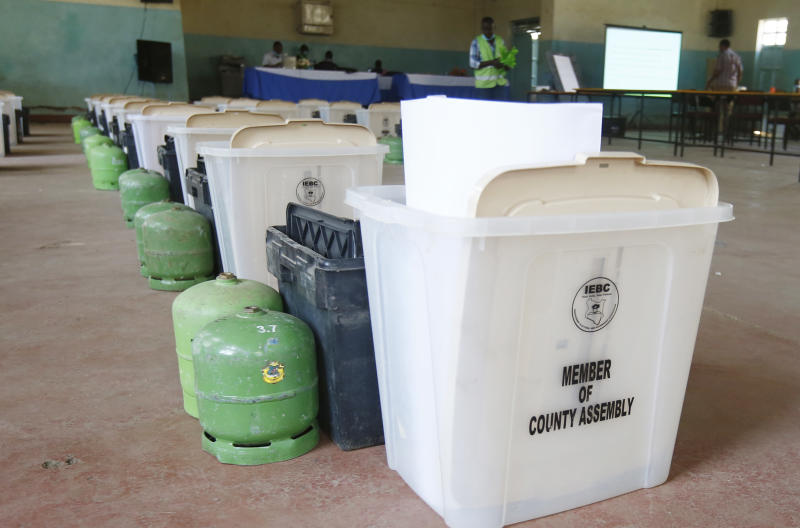×
The Standard e-Paper
Fearless, Trusted News

Ballot boxes and other election materials at Moi Secondary School in Nakuru on March 2, 2021 [Kipsang Joseph, Standard]
Head of the Elections Preparedness Secretariat in the National Police Service, Dominic Kisavi, has announced that police officers are going to be trained in the use of non-lethal means to manage the public ahead of next year’s elections. He further disclosed that the service has since 2020 worked to identify areas of weakness based on previous experiences.